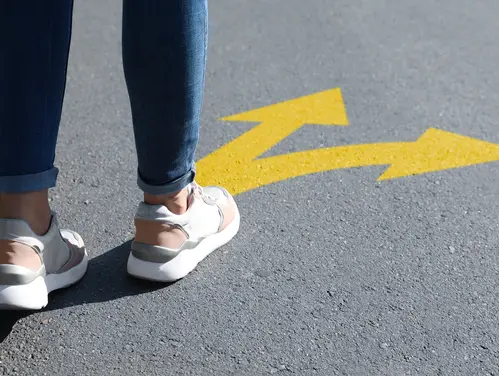When paraeducators Kara Maloy and Cody Saveraid stepped back into their schools this fall, they were more than just ready; they were prepared. This year, both associates returned to their school districts as certified paraeducators, which has strengthened their skills and provided strategies on how to best support students and teachers in the classroom.
Currently, Iowa does not require paraeducators to be certified to work in schools. An estimated 1,065 associates have received their paraeducator certification during 2022-23, and Maloy, an associate at Albia Community School District, and Saveraid, an associate at Waukee Community School District, had no hesitations about joining in the certification process.
“I wanted more knowledge about being a better associate and to have more tools to work with students,” Maloy said. “I loved being able to take the paraeducator course. It was very informational and will help me with many different areas at school.”
In Iowa, paraeducator courses are offered through 25 programs at community colleges, Area Education Agencies (AEA) and four-year institutions. To be certified, paraeducators are required to complete two to three courses of a total of 90 contact hours for general studies and another 45 hours for additional areas of concentration, such as English as a second language, special needs, early childhood and more.
Maloy and Saveraid both received their paraeducator certification through courses at Indian Hills Community College.
“It was great to have some formal education on all of the things we do in the classroom and the students we support,” Saveraid said. “It helped put the reasons why behind what we are doing.”
Opportunities for paraeducator certification have been supported by the Iowa Department of Education through competitive paraeducator grants. In 2022, 10 community colleges, private colleges and AEAs were awarded a total of nearly $890,000 to cover tuition, fees and book expenses. In the spring of 2023, an additional $145,000 was awarded to six more recipients.
“We want to support the paraeducators around the state who are providing high-quality educational support for our students,” said Kelly Faga, Department education program consultant. “Having certified, highly trained associates not only benefit the schools they support but also provide opportunities for them to upskill and advance in their own careers.”
As a result of their paraeducator certification, Maloy and Saveraid have already seen positive outcomes. Both associates received an increase in wages at their respective school districts, and more importantly, both are moving forward with their career goals in education.
“I am in the teaching program, where I am working towards my teaching degree,” Saveraid said. “The paraeducator certification is required for the program.”
Saveraid and Maloy are a part of teacher preparation programs that assist paraeducators who want to work towards their bachelor’s degree in education. These programs, often funded through the Teacher Paraeducator Registered Apprenticeship grant, provide online coursework and classroom experience and allow paraeducators to continue working while earning their degree. For these teacher pipeline programs, only certified paraeducators may participate.
“To any associates looking into earning their teaching degree, I say go for it,” Maloy said. “If I stay on-track, I will start student teaching by May 2025, so I’m on my way.”
Paraeducator certification can provide associates across the state with benefits for both themselves and their school districts. Maloy and Saveraid have already seen how it has impacted their own work, and they serve as examples of what certification can provide to paraeducators statewide.
“It’s fulfilling to know that I can support students in a positive way,” Saveraid said. “Through the certification courses, I have more experience and knowledge to help kids have a quality learning experience.”
